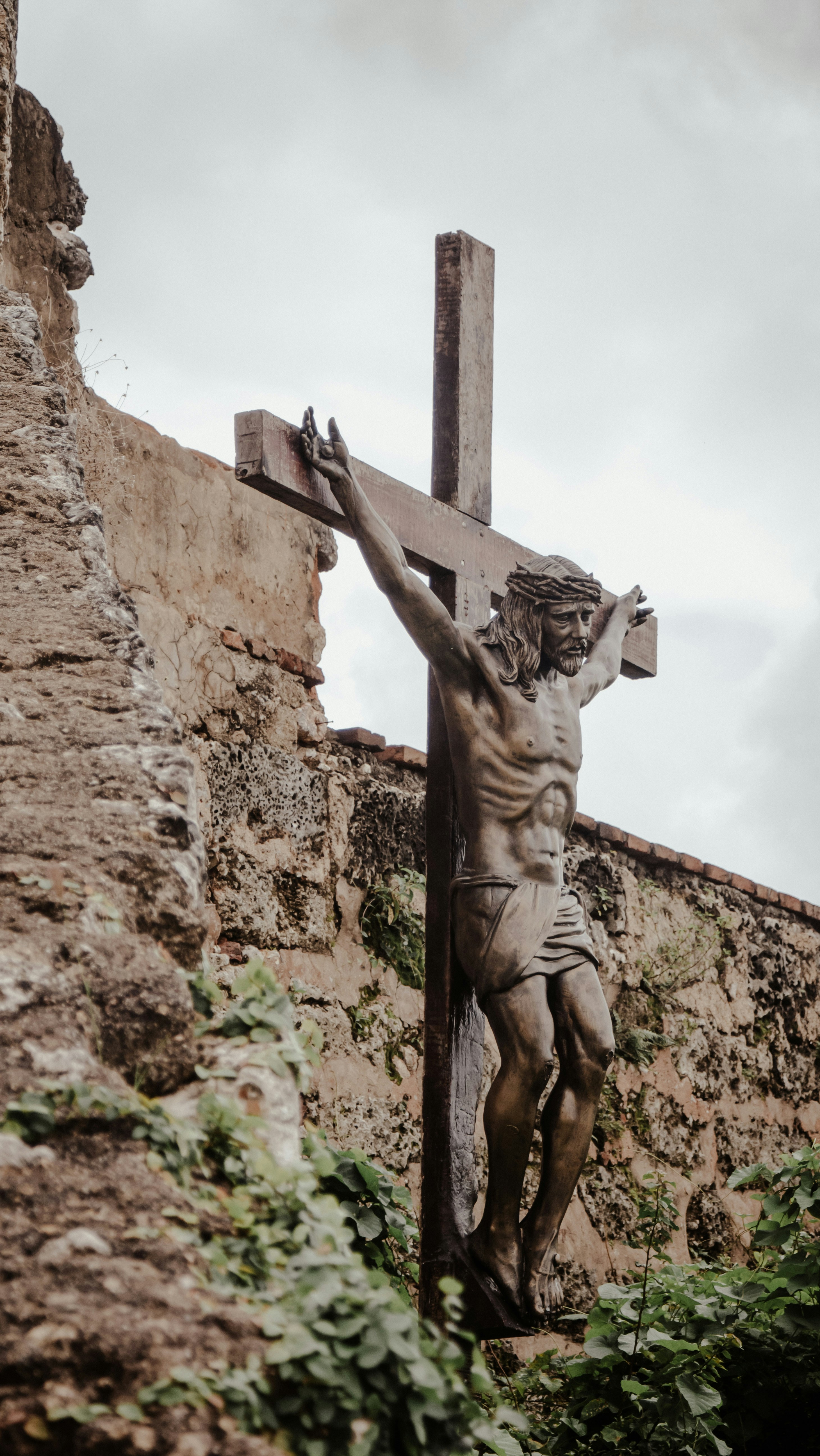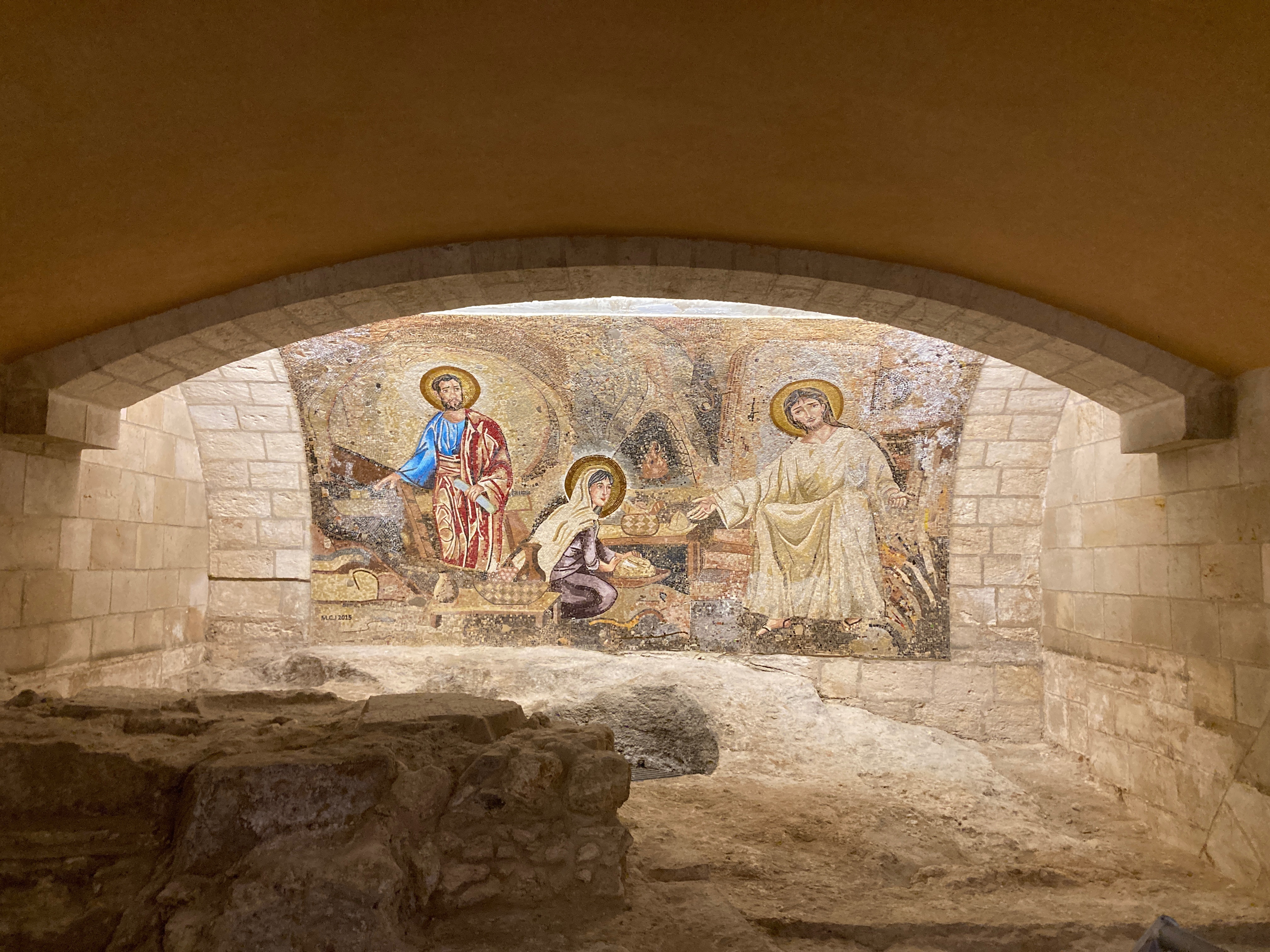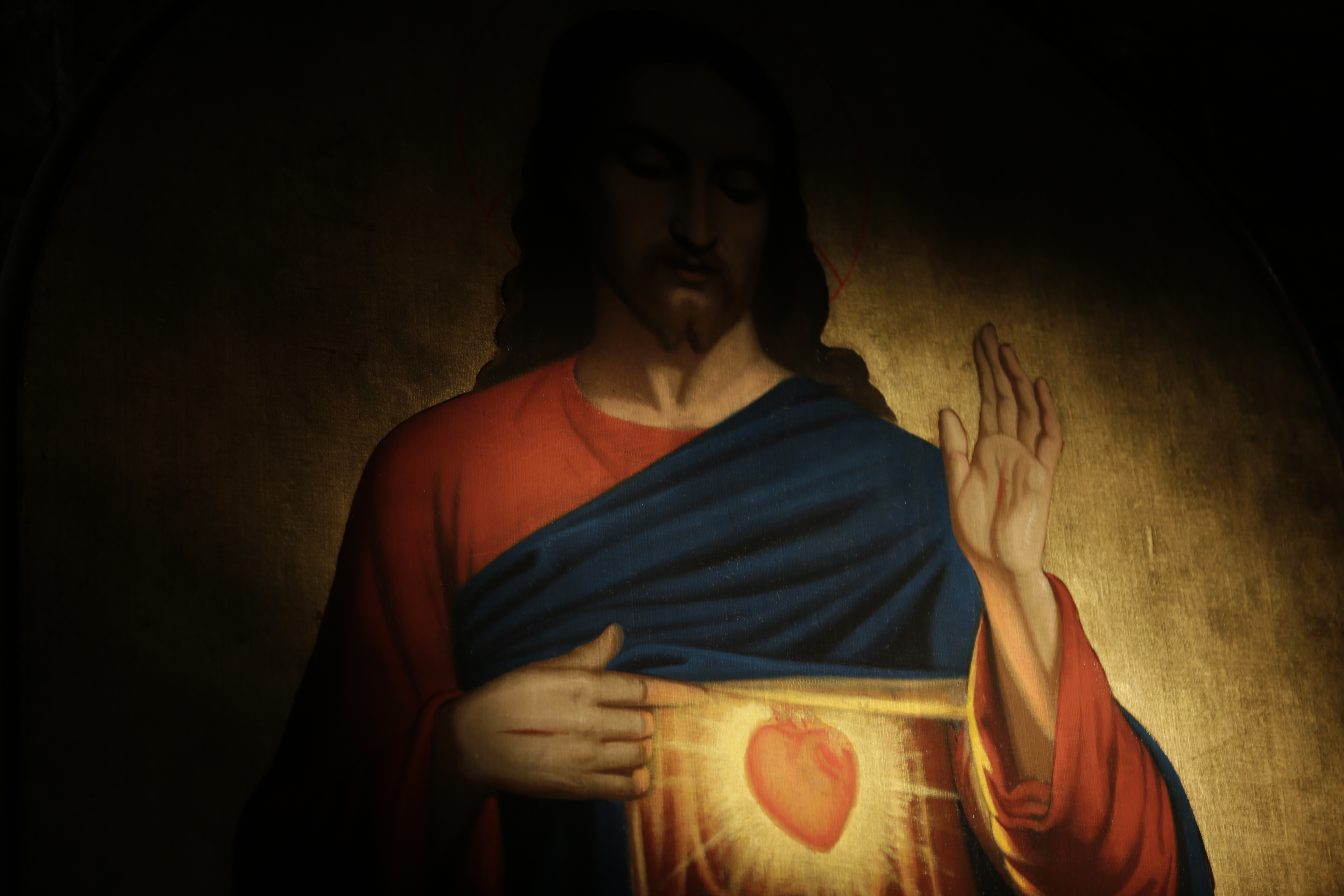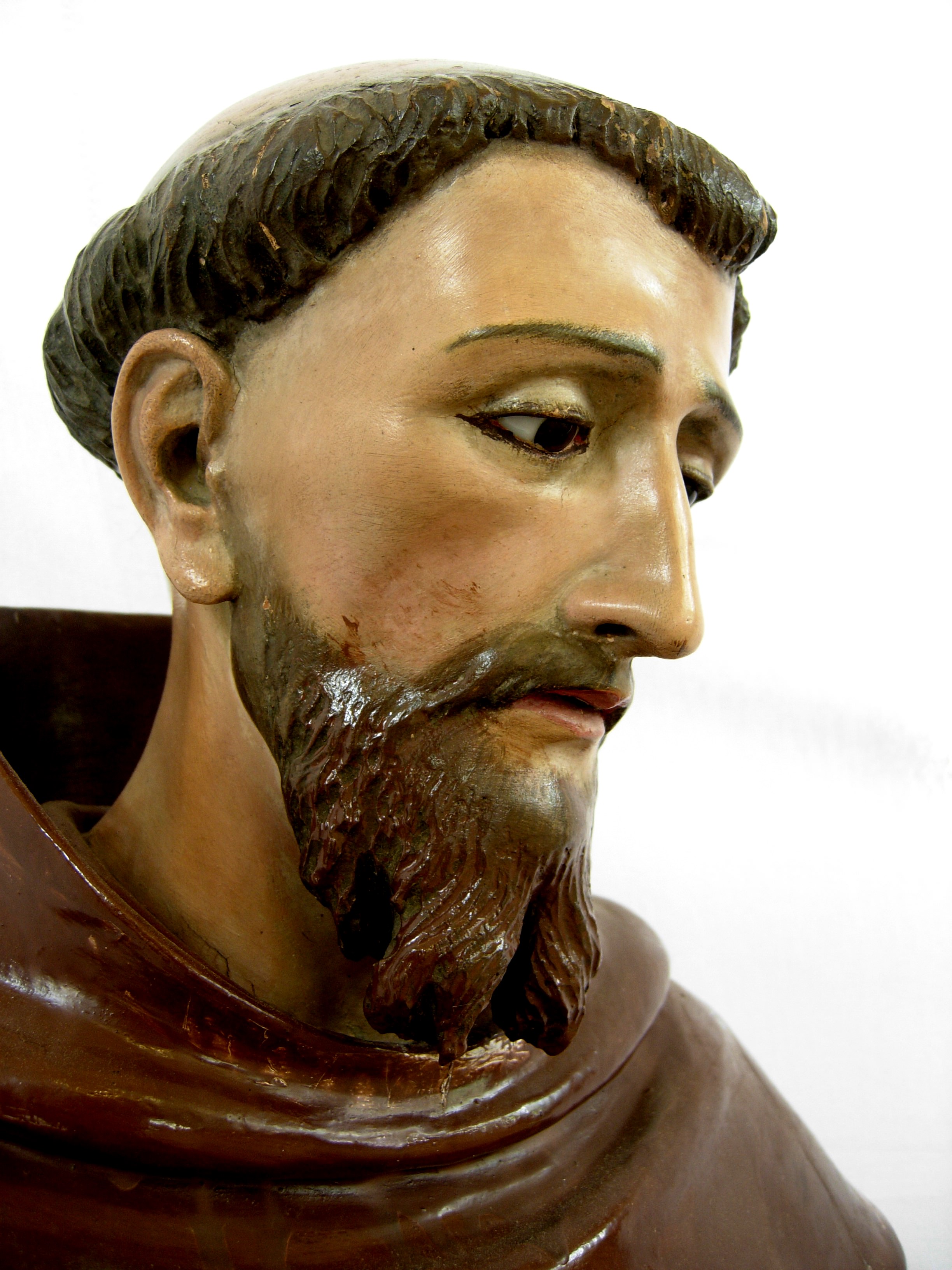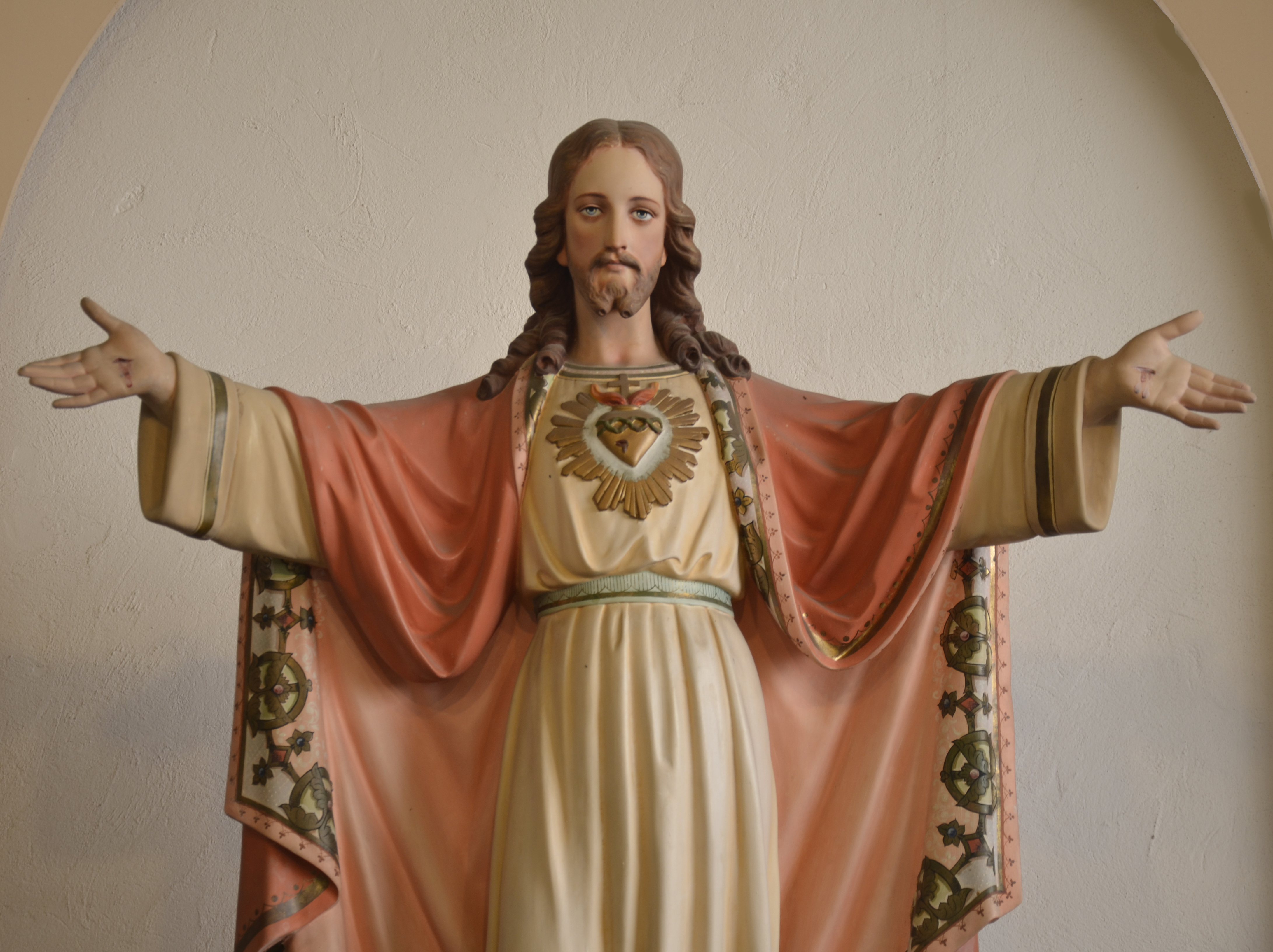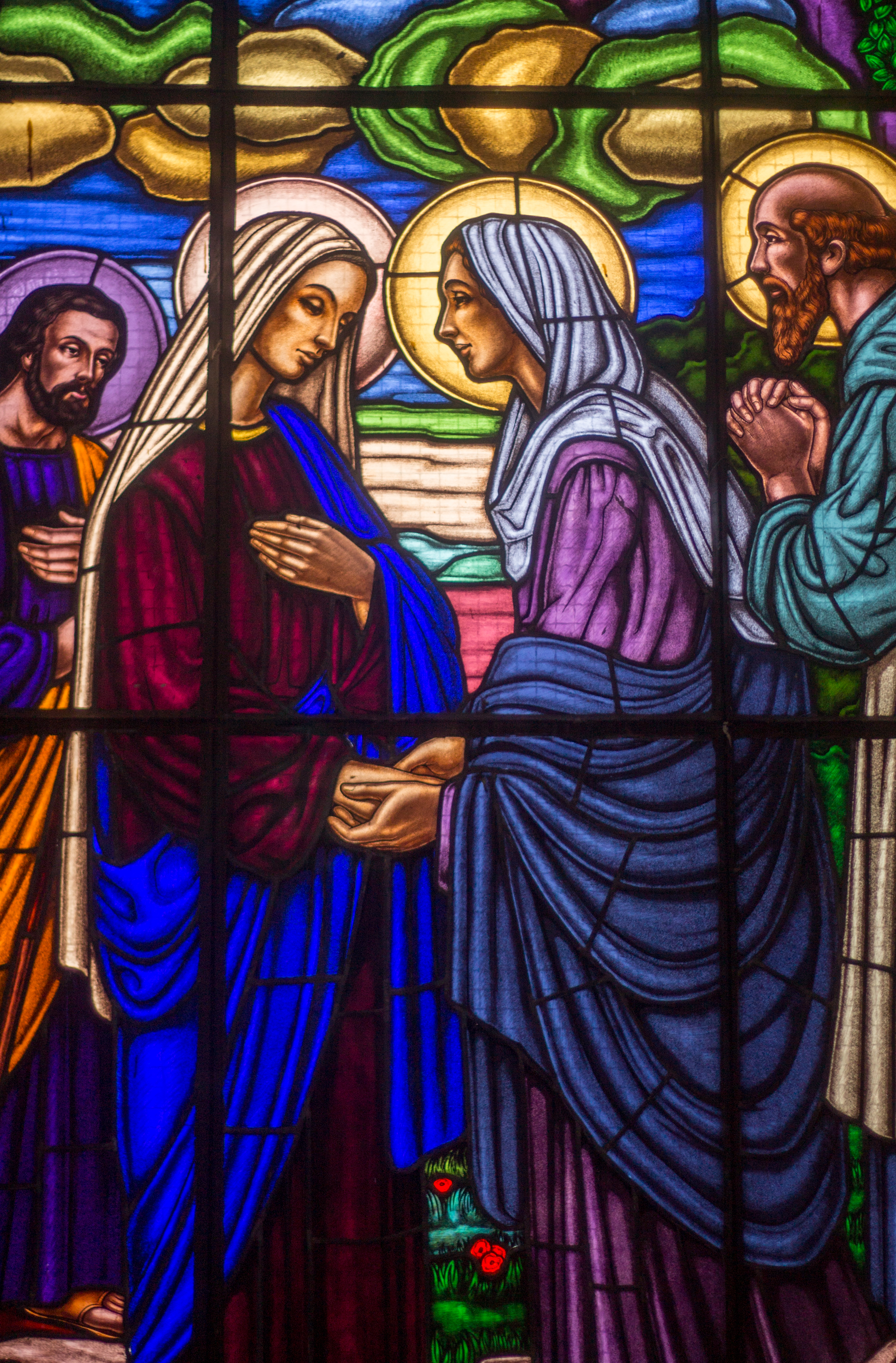Our hearts sink with sadness as we recall the Death of our Lord on this day. The Church invites us to fast and pray as we seek to unite our hearts with His. We read in today’s Gospel how our Lord humbled himself and was treated like a criminal, on the way to Calvary.
Today’s Gospel opens up with our Lord in the Kedron Valley, where he used to meet with the disciples. He went to a garden, the very same place where Adam and Eve fell into sin thousands of years before. But this time, Jesus would not fall into sin but rather be the sacrifice and give His life up for us, so the devil would not be victorious.
Jesus was met with the cohort and guards sent by the chief priests and the Pharisees with the desire to embrace Christ like a criminal, with torches and weapons. The Pharisees were determined for Jesus to be “caught,” and yet, they still didn’t know Him; they didn’t know His teachings, for His ways are not a way of violence and hatred but instead sacrifice and love.
Jesus proclaims to the crowd, “Who are you looking for?” and they respond, “Jesus the Nazarene.” He responded, “I am He.” He is the king of kings, the Lord of Lords, and the great Savior of the universe, but to the Pharisees, He was just Jesus the Nazarene. If Jesus had freely destroyed his enemies that night, he would not have solved the problem He came to this world to fix: sin. Instead, Jesus is the King of Love and will conquer hearts through love and not force or violence.
Jesus continues to lead the conversation and takes the authority of this moment; He says, “Who are you looking for?” They reply again, Jesus the Nazarene. Jesus replies, “I told you, I am He.” for the third time, He affirms His identity and hands himself over freely, asking for His disciples to be let go. With that, the passion of our Lord continues. Jesus is showing us the way to heaven through humility and following the will of God.
Jesus died for each of us. He died to open the gates of heaven to us on Easter Sunday, but we need to choose to be a friend of Christ. We need to open our hearts to the Lord so that He can change them and remove anything that resides within that prevents us from loving others. Jesus desires to forgive us, but we must go to Him for that forgiveness.
Lord Jesus, thank you for the ultimate sacrifice that you made on the cross to conquer sin and death and win for us eternal salvation.
Nuestros corazones se hunden de tristeza al recordar la Muerte de nuestro Señor en este día. La Iglesia nos invita a ayunar y orar mientras buscamos unir nuestros corazones al suyo. Leemos en el Evangelio de hoy cómo nuestro Señor se humilló y fue tratado como un criminal, camino al Calvario.
El evangelio de hoy comienza con nuestro Señor en el valle de Kedron, donde solía reunirse con los discípulos. Fue a un jardín, el mismo lugar donde Adán y Eva cayeron en pecado miles de años antes. Pero esta vez, Jesús no caería en pecado sino que sería el sacrificio y daría Su vida por nosotros, para que el diablo no saliera victorioso.
Jesús se encontró con la cohorte y los guardias enviados por los sumos sacerdotes y los fariseos con el deseo de agarrar a Cristo como un criminal, con antorchas y armas. Los fariseos estaban decididos a que Jesús fuera “atrapado” y, sin embargo, todavía no lo conocían; no conocían Sus enseñanzas, porque Sus caminos no son un camino de violencia y odio sino de sacrificio y amor.
Jesús proclama a la multitud: “¿A quién buscan?” y ellos responden: “A Jesús el Nazareno”. Él respondió: “Yo soy”. Jesús es el rey de reyes, el Señor de señores y el gran Salvador del universo, pero para los fariseos, era simplemente Jesús el Nazareno. Si Jesús hubiera destruido libremente a sus enemigos esa noche, no habría resuelto el problema que vino a solucionar a este mundo: el pecado. En cambio, Jesús es el Rey del Amor y conquistará los corazones a través del amor y no de la fuerza o la violencia.
Jesús continúa liderando la conversación y toma la autoridad de este momento diciendo: “¿A quién buscas?” Ellos responden nuevamente: “A Jesús, el Nazareno.” Jesús respondió: “Les he dicho que yo soy”. Por tercera vez afirma su identidad y se entrega libremente, pidiendo que dejen ir a sus discípulos. Con eso continúa la pasión de nuestro Señor. Jesús nos está mostrando el camino al cielo a través de la humildad y siguiendo la voluntad de Dios.
Jesús murió por cada uno de nosotros. Murió para abrirnos las puertas del cielo el Domingo de Pascua, pero tenemos que elegir ser amigos de Cristo. Tenemos que abrir el corazón al Señor para que pueda cambiarlo y eliminar todo lo que reside por dentro que nos impide amar a los demás. Jesús desea perdonarnos, pero debemos acudir a Él para obtener ese perdón.
Señor Jesús, gracias por el máximo sacrificio que hiciste en la cruz para vencer el pecado y la muerte y ganar para nosotros la salvación eterna.
 Emily Jaminet is a Catholic author, speaker, radio personality, wife, and mother of seven children. She earned a bachelor’s degree in mental health and human services from the Franciscan University of Steubenville. She is the co-founder of www.inspirethefaith.com and the Executive Director of The Sacred Heart Enthronement Network www.WelcomeHisHeart.com. She has co-authored several Catholic books and her next one, Secrets of the Sacred Heart: Claiming Jesus’ Twelve Promises in Your Life, comes out in Oct. 2020. Emily serves on the board of the Columbus Catholic Women’s Conference, contributes to Relevant Radio and Catholic Mom.com.
Emily Jaminet is a Catholic author, speaker, radio personality, wife, and mother of seven children. She earned a bachelor’s degree in mental health and human services from the Franciscan University of Steubenville. She is the co-founder of www.inspirethefaith.com and the Executive Director of The Sacred Heart Enthronement Network www.WelcomeHisHeart.com. She has co-authored several Catholic books and her next one, Secrets of the Sacred Heart: Claiming Jesus’ Twelve Promises in Your Life, comes out in Oct. 2020. Emily serves on the board of the Columbus Catholic Women’s Conference, contributes to Relevant Radio and Catholic Mom.com.
Feature Image Credit: Manuel Guerrero, unsplash.com/photos/brown-concrete-statue-of-man-1lQLWqww4mQ
